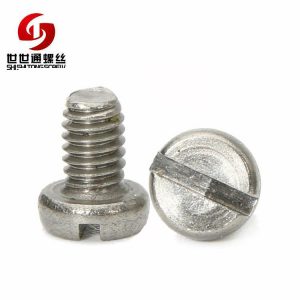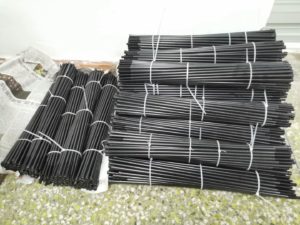In stainless steel fastener screws, what are the functions of chromium, nickel, molybdenum, and titanium?
Stainless steel fastener screws are so good at preventing rust because they contain various elements. Today, we will focus on the functions of chromium, nickel, molybdenum, and titanium in stainless steel.

Chromium in stainless steel can not only promote the passivation state of steel, keep the steel in a stable passivation condition, but also improve the performance of oxidation resistance medium and acid chloride medium. Under the combined action of nickel, molybdenum, and copper elements, chromium can improve the resistance of steel to reductive media, organic acids, urea, and alkaline medium. In addition, chromium also improves the resistance of steel to local corrosion, such as intergranular corrosion.

For stainless steel, adding nickel elements can change the mechanical properties of stainless steel. With the increase of nickel content, the steel’s strength decreased, and plasticity will improve. More than that, nickel can also significantly improve the thermal performance of stainless steel, thus significantly improving the yield.

Molybdenum element added to stainless steel can strengthen the stainless steel’s body, improve the high temperature strength and creep properties. Therefore, molybdenum-containing stainless steel fastener screws are also commonly used in high temperature environments.

The intergranular corrosion resistance and high-temperature strength of stainless steel can be improved by adding titanium elements.
Shi Shi Tong stainless steel fastener screws factory can customize many kinds of screws. If you have an interest in our factory, please contact us.
 |
Skype: kalyn qin
M: +86 18818786322
Tel: +86 0755-27322278
sst@szsst88.com
Add: No. 11, Dinghou Road, Dongfang Community, Songgang Street, Baoan District, Shenzhen, Guangdong, China |